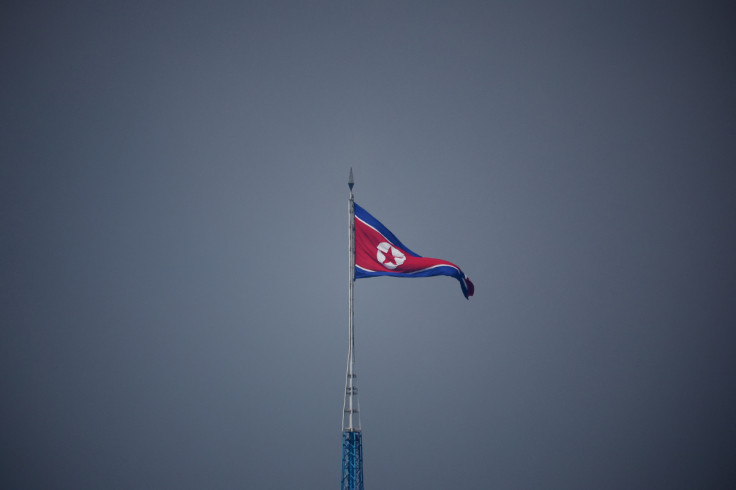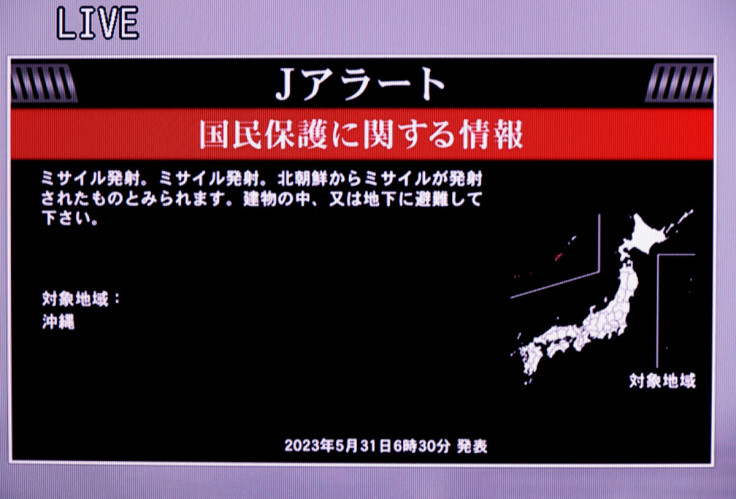North Korea Tries To Launch Space Satellite; Warnings Lifted In S.Korea, Japan

North Korea attempted to launch what it called a space satellite over the sea to the south on Wednesday, South Korea's military said, as the nuclear-armed North seeks to gain ground in a regional space race.
The launch prompted emergency alerts and brief evacuation warnings in parts of South Korea and Japan, which were then withdrawn with no danger or damage reported.
South Korea's military said it was still analysing whether the launch was successful, while media in South Korea and Japan said governments there were examining the possibility that it failed. North Korean state media did not immediately report on the launch.
North Korea had said it would launch its first military reconnaissance satellite between May 31 and June 11 to boost monitoring of U.S. military activities.
It joins an increasingly heated space race in the region. South Korea last week placed satellites in orbit with a domestically designed and produced rocket for the first time, and China sent three astronauts to its now fully operational space station as part of crew rotation on Tuesday.
"Whether or not North Korea's current satellite mission is a success, Pyongyang can be expected to issue political propaganda about its space capabilities as well as diplomatic rhetoric aimed at driving a wedge between Seoul and Tokyo," said Leif-Eric Easley, an international studies professor at Ewha University in Seoul.
WARNINGS ISSUED
In data provided to international authorities, North Korea said the launch would carry the rocket south, with various stages and other debris expected to fall over the Yellow Sea and into the Pacific Ocean.
Air raid sirens wailed across the South Korean capital of Seoul around 6:32 a.m. (2132 GMT Tuesday) as the city issued a warning asking citizens to prepare for potential evacuation. Later alerts said the city warning had been sent by mistake.
The Japanese government issued an emergency warning over its J-Alert broadcasting system for residents of the southern prefecture of Okinawa early on Wednesday morning. The government warned residents to take cover indoors if they were outside.
It later said the missile would not fly to Japan's territory and lifted the warnings.
MISSILE TECHNOLOGY
On Tuesday, Ri Pyong Chol, vice-chairman of the Central Military Commission of North Korea's ruling Workers' Party, said ongoing joint military exercises by the U.S. and South Korea required Pyongyang to have the "means capable of gathering information about the military acts of the enemy in real time."
Before Wednesday's launch, the U.S. State Department said any North Korean launch that used ballistic missile technology would violate multiple United Nations Security Council resolutions.
"Space launch vehicles (SLVs) incorporate technologies that are identical to, and interchangeable with, those used in ballistic missiles, including intercontinental ballistic missiles," a State Department spokesperson said.
North Korea has previously attempted five satellite launches, with two satellites placed in orbit, including during its last such launch in 2016. Its capacity for constructing working satellites remains unproven, however, analysts say.
"To the best of our knowledge, North Korea has a very limited capacity to build satellites," said Brian Weeden of the Secure World Foundation, a U.S.-based organization in the field of space policy and security. "They have launched a couple of satellites before, but all of them failed immediately after launch or shortly thereafter and none of them appeared to have any significant capability."


© Copyright Thomson Reuters {{Year}}. All rights reserved.





















